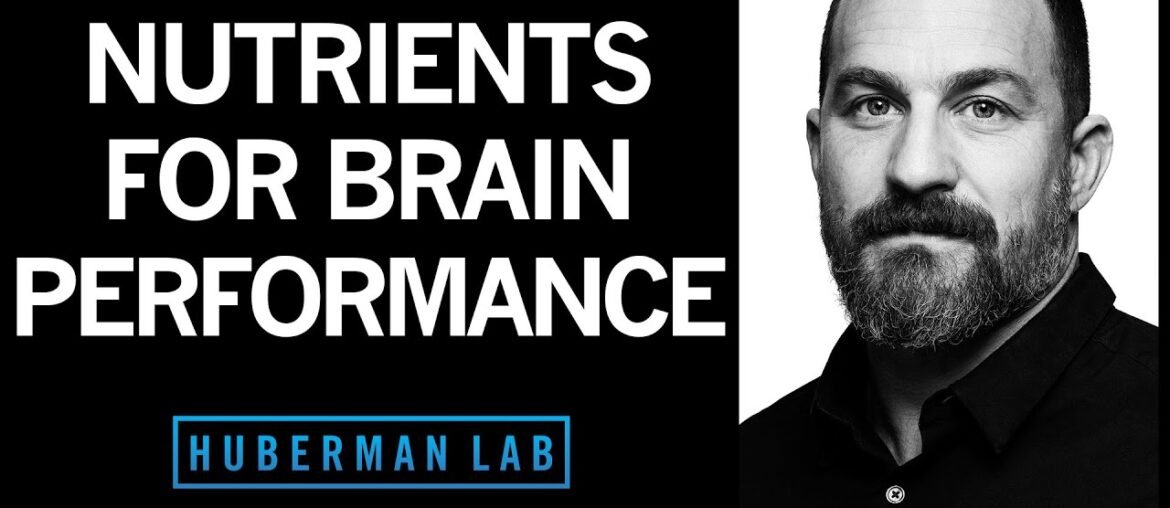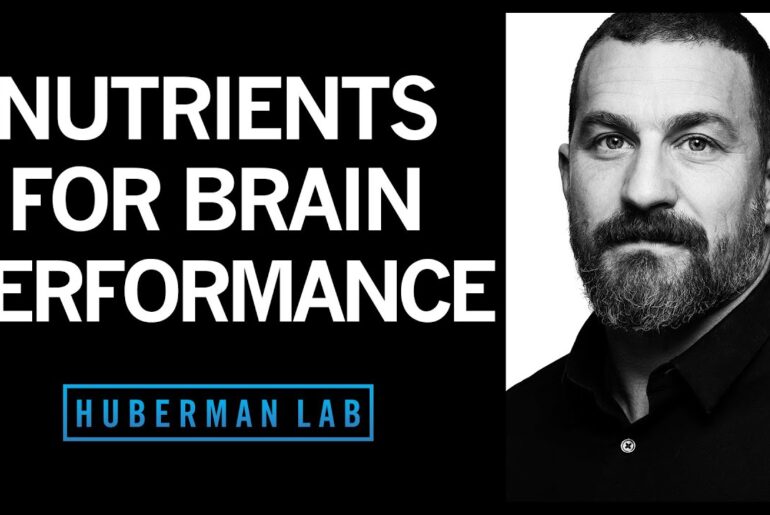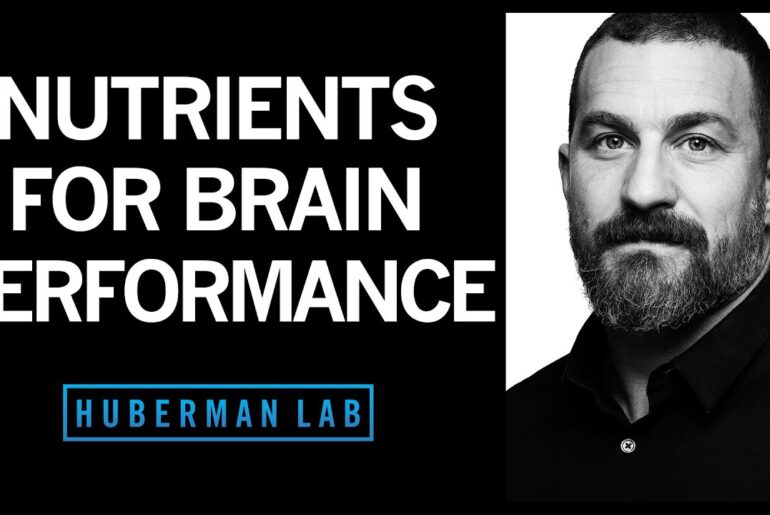
It might come as a surprise to many that the same supplement popular among athletes for boosting physical performance is now under the spotlight for improving cognitive health. Creatine, traditionally known for its muscle-enhancing properties, is gaining traction in the realm of brain health. As someone deeply invested in the dialogue around nootropics and cognitive function, I find the burgeoning research on creatine’s potential to enhance cognition particularly gripping. Systematic reviews suggest that creatine supplementation may not only bolster short-term memory and intelligence/reasoning but may also serve a neuroprotective role, inviting consideration of its safety and efficacy for cognitive enhancement.
Despite the growing body of evidence supporting creatine’s brain-boosting capabilities, concerns regarding its safety remain a critical topic for discussion. As such, it’s imperative to sift through the abundance of data to understand how creatine’s established energy-boosting mechanism translates into cognitive benefits. Especially for populations like vegetarians, who typically show lower creatine levels due to dietary restrictions, the cognitive enhancements observed with supplementation may be even more pronounced, raising questions about personalized approaches to brain health.
Key Takeaways
- Creatine has potential beyond muscle-building; it’s a promising candidate for cognitive enhancement.
- Systematic reviews indicate creatine could improve short-term memory and intelligence in healthy individuals.
- The safety profile of creatine is favorable, though larger studies are needed to clarify its long-term effects.
- Vegetarians may experience more pronounced cognitive benefits from creatine supplementation due to lower baseline levels.
- Understanding creatine’s role in cognitive health is essential, as it could be particularly beneficial for aging and stressed populations.
The Role of Creatine in Cognitive Enhancement
As we delve into the intricate relationship between creatine supplementation and the brain’s performance, it’s essential to discern the mechanisms and impacts of this popular brain-boosting supplement. Understanding how creatine functions within our grey matter could unlock the secrets to significant cognitive enhancement.
Understanding Creatine’s Function in the Brain
Creatine, naturally occurring in the human body, particularly within muscle tissue, also plays a crucial role in the brain. This pivotal compound aids in energy regulation by recycling adenosine triphosphate (ATP), the cell’s main energy currency. By donating phosphate groups to expended ATP molecules, creatine ensures a steady energy supply, which is vital for the high-demand environment of brain tissues.
Relationship Between Cognitive Function and Creatine Levels
Extensive research backs the theory that creatine levels and cognitive function are intricately linked. In conditions where genetic mutations affect the brain’s creatine metabolism, supplementing with creatine has shown improvements in cognitive abilities, denoting a direct influence on brain function. Moreover, vegetarians often showcase a marked cognitive advancement when engaging in creatine supplementation, lending credence to the view that elevated creatine levels can yield positive cognitive outcomes.
| Cognitive Task | Impact of Creatine Supplementation |
|---|---|
| Memory | Enhanced performance, particularly in vegetarians |
| Intelligence/Reasoning | Improvements noted in certain populations |
| Attention | Mixed results, more research needed |
| Energetic Demand | Increased energy availability in brain cells |
In summary, the promising avenues of thought regarding creatine supplementation spotlight both the theoretical underpinnings and empirical evidence supporting its use in cognitive enhancement. Therefore, understanding the dynamics of creatine within the neural landscape is not just intriguing scientifically but offers practical implications for mental agility and health.
Clinical Trials on Creatine for Brain Performance

As a journalist deeply vested in the importance of cognitive health and advancements in neuroscientific research, I have observed a surge in interest regarding the role of supplements in enhancing brain performance. Among these, creatine, typically known for its physical performance benefits, is being studied through randomized clinical trials to assess its potential cognitive enhancements. My investigation into these trials revealed a nuanced landscape where age and diet play a pivotal role in cognitive outcomes.
In an intriguing twist, distinct demographic groups display varying responses to creatine supplementation. For example, the trials denote that while young adults may not experience a notable change in cognitive function in response to creatine, the aging population appears to harness potential benefits — a finding that could guide future interventions targeting cognitive decline. Furthermore, these clinical studies have shown that vegetarians seem to have a markedly positive response to creatine, especially in memory-based tasks, compared to their meat-eating counterparts.
These findings underscore the complexity of cognitive health and the need for individualized approaches to supplement use. It’s not a one-size-fits-all scenario when it comes to optimizing brain function.
The meticulous methodology employed in these trials, with adherence to guidelines such as PRISMA, grants a solid foundation for systematic review and meta-analysis integrity. We, as consumers of this information, can feel confident about the robustness and reliability of the data presented within these studies.
Finally, it’s worth emphasizing the significance of randomized clinical trials in unraveling the connections between supplements like creatine and cognitive function. They not only add depth to our understanding but also open new doors for using well-known compounds to support cognitive health in a meticulously validated manner.
Evidence Supporting Creatine’s Efficacy in Cognitive Tasks
The ongoing exploration into creatine’s role in brain health has yielded some intriguing findings, particularly concerning its positive effects on cognitive tasks. My in-depth review yields important insights into the substance’s influence on various areas of cognitive performance. Let’s delve deeper into the specifics.
Improvements in Short-term Memory
Multiple research endeavors consistently suggest that oral creatine supplementation holds promise for boosting short-term memory. This link appears robust, as a variety of studies demonstrate that individuals ingesting creatine show improved recall abilities and working memory span—key components critical for everyday cognitive tasks.
Intelligence and Reasoning Enhancements
When it comes to reasoning and advanced problem-solving, the connections between creatine intake and enhanced intelligence measures are compelling. Some scholars postulate that the observed cognitive enhancements may stem from increased energy availability in the brain, which facilitates more efficient neural processing and could result in heightened reasoning abilities.
| Cognitive Task | Performance without Creatine | Performance with Creatine |
|---|---|---|
| Short-term Memory | Baseline | Improved |
| Reasoning | Baseline | Enhanced |
| General Intelligence | Baseline | Mixed Results |
These promising outcomes, as seen in the table, underscore the potential of creatine as a supplement that not only enhances physical but also cognitive performance. There’s an implicit call for a more expansive body of research to confirm these findings across diverse populations and cognitive conditions.
Potential Side Effects of Creatine Supplementation

When it comes to enhancing physical performance and possibly cognitive functions, many individuals turn to supplements like creatine. Yet, despite its popularity and widespread use, concerns about creatine side effects and creatine safety persist. It’s crucial to acknowledge that while most users tolerate creatine well, there are some potential side effects that warrant attention.
The primary side effect associated with creatine supplementation is a modest increase in body weight. This weight gain is usually slight and is thought to be due to water retention within muscle cells, an expected part of the process as creatine pulls water into the muscles. Understanding this physiological response can help dispel undue concern over this harmless, and in many cases, temporary side effect.
| Side Effect | Description | Frequency |
|---|---|---|
| Weight Gain | Slight increase, generally due to intramuscular water retention | Common |
| Digestive Issues | Includes bloating, stomach discomfort, or diarrhea | Varies |
| Muscle Cramping | Possible muscle cramps or strains, often due to inadequate hydration | Uncommon |
| Dehydration | Risk increases if fluid intake is not adjusted to account for creatine’s water retention effects | Uncommon |
| Kidney Stress | Concerns over renal load, particularly with pre-existing kidney conditions | Rare, with normal kidney function |
It is also noteworthy to state that the reported digestive issues, such as bloating or diarrhea, may arise, particularly when high doses of creatine are consumed. In such cases, these issues can often be mitigated by adopting lower dosages or opting for slow-release formulas.
Regarding the safety profile of creatine, there are suspicions surrounding potential kidney stress, especially when used in high doses over extended periods. However, current evidence does not confirm creatine to pose significant risks to kidney health in individuals with normal renal function. Continuous research and monitoring are valuable to ensure creatine safety for both short-term and long-term usage.
Furthermore, while rare, there have been instances of muscle cramping and dehydration linked to creatine use. These side effects are often tied to insufficient hydration practices and can generally be avoided by increasing fluid intake during supplementation.
As a responsible user, it is recommended to consult a healthcare provider before starting any supplementation, to fully understand the potential effects on your unique physiology and to determine the appropriateness of creatine for your health goals.
Creatine Safety for Cognitive Enhancement
In our continuous exploration of creatine safety and its use for cognitive enhancement, a keen understanding of dosage and administration practices is paramount. These not only impact the efficacy of creatine but also the long-term safety of this popular supplement.
Understanding Dosage and Administration
For individuals looking to boost their cognitive function, the commonly recommended creatine dosage stands at 5 grams daily. This guideline is rooted in extensive research and balances efficacy with safety. The form most endorsed due to its high bioavailability is creatine monohydrate, which is easily absorbable and has shown positive outcomes in several studies on cognitive enhancement.
Long-term Safety Considerations
The commitment to ongoing research is critical when discussing the long-term safety of sustained creatine use. Although short-term administration has been widely accepted as safe, it is our responsibility to scrutinize the effects of long-term usage on brain creatine stores and overall brain health. Current evidence is promising, yet conclusive data necessitates further in-depth study.
| Aspect | Standard Recommendation | Long-term Consideration |
|---|---|---|
| Form | Creatine Monohydrate | Review for Bioavailability |
| Dosage | 5 grams per day | Monitor Brain Creatine Stores |
| Administration | Oral Intake | Examine Impact on Cognitive Functions |
| Safety | Generally Considered Safe | Further Research Required |
Comparing Cognitive Benefits in Vegetarians and Meat Eaters

As a journalist deeply engrossed in the intersection of diet and cognitive health, I take a keen interest in how dietary choices influence brain function. Notably, emerging research suggests that vegetarians may experience more pronounced cognitive benefits from creatine supplementation compared to meat-eaters. This could be attributed to variations in baseline creatine levels, which are inherently lower in individuals following a plant-based diet. Let’s delve into the particulars that emerge when considering these dietary groups in the context of cognitive enhancement.
Given their lower consumption of creatine-rich foods, vegetarians often begin creatine supplementation with lower levels of this critical molecule already present in their systems. It stands to reason that incorporating creatine supplements can propel them to a level playing field in terms of brain creatine concentration, thereby possibly amplifying their cognitive health. In contrast, meat-eaters typically consume more creatine through their diet, which may result in a less noticeable cognitive uplift upon supplementation.
Here’s a closer look at how both groups benefit cognitively from creatine, based on recent scientific data:
| Cognitive Benefit | Vegetarians | Meat Eaters |
|---|---|---|
| Memory Enhancement | Significant Improvement | Mild to Moderate Improvement |
| Executive Function | Noticeable Improvement | Varies |
| Energy Metabolism | Marked Increase | Slight Increase |
| Attention and Focus | Moderate Improvement | Minimal Change |
These findings suggest that supplementation strategies may need to be tailored according to one’s diet to maximize cognitive returns. Consequently, this may pave the way for personalized supplementation plans that take into account an individual’s dietary habits and baseline creatine levels.
“Cognitive health is not a one-size-fits-all matter, and this becomes increasingly clear when considering varying diets. Creatine supplementation requires a nuanced approach, particularly when dietary patterns are as distinct as those seen in vegetarians and meat-eaters.”
Demystifying Creatine and Brain Health Myths

When it comes to the subject of brain health and cognitive enhancement, there’s a persistent cloud of creatine myths and common misconceptions that obscure the reality of this powerful supplement. As someone passionate about wellness and science, I find it crucial to dispel these illusions with hard evidence and clear facts.
Addressing Common Misconceptions
One widespread belief is that creatine is beneficial only for athletes—but current research points otherwise. Studies now reveal that creatine can play a pivotal role in cognitive function by increasing brain creatine stores, notably so in individuals with lower creatine levels from dietary choices, such as vegetarians.
Separating Fact from Fiction in Cognitive Enhancement
The notion that creatine supplementation could lead to cognitive enhancement isn’t a baseless claim. Scientific evidence indicates potential improvements in cognition and memory, especially among aging adults and those experiencing metabolic stress, where these benefits are most pronounced.
| Creatine Myth | Fact |
|---|---|
| Creatine is only for muscle and strength. | Creatine also supports cognitive function and brain health. |
| Creatine leads to harmful side effects. | Creatine is generally safe, with its most common side effect being water retention. |
| Creatine usage is purely short-term | Long-term supplementation of creatine has been studied, showing sustained cognitive benefits. |
| Vegans and vegetarians won’t benefit from creatine. | Vegetarians may actually experience more significant cognitive improvements when supplementing with creatine. |
Evidence-based conversation and accurate information distribution are cornerstones in combating confusion regarding creatine. Tackling these myths not only clears the fog for consumers but also paves the way for more nuanced discussions and further scientific exploration into the realm of cognitive enhancement.
Creatine’s Impact on Aging and Cognitive Decline
As we delve into the intersection of creatine use and aging, it becomes clear that this supplement is not just for athletes seeking physical enhancement. I’ve observed growing evidence pointing to its utility in slowing down the symptoms of cognitive decline among the elderly. By maintaining adenosine triphosphate (ATP) levels, creatine promises to support brain health by ensuring a steady energy supply in an age group that is particularly vulnerable to energy deficits in the brain.
Role in Supporting Aging Brain Health
My exploration into the role of creatine in supporting aging brain health has revealed a potential to mitigate the natural reduction in cognitive function associated with getting older. The crucial part it seems to play is tied to its energy-enhancing properties, which could prove to be a game-changer for those experiencing age-related cognitive challenges. However, the rate and extent of replenishment of brain creatine stores are factors that differ uniquely with age, making tailored research for aging populations imperative.
Research Outcomes for Creatine and Elderly Cognitive Function
In my analysis of research outcomes, the correlation between creatine and elderly cognitive function appears promising but to varying degrees. While some studies show a marked improvement in cognitive tasks, others suggest a more modest benefit. These varied responses underscore the need for a deeper understanding of age-related bioenergetic processes and how creatine supplementation could effectively support cognitive health as we age. My commitment as a journalist is to bring clarity and insight into these findings, ensuring that our aging population is well-informed about the possibilities creatine supplementation may hold for their cognitive well-being.
FAQ
What role does creatine play in cognitive enhancement?
Creatine is crucial for brain health as it supports the rapid supply of energy to brain tissues, which is pivotal for maintaining cognitive function. This energy supply potential is why creatine supplementation is being researched for cognitive enhancement.
There is a strong connection between cognitive function and creatine levels. In cases of genetic creatine disorders with mental dysfunction, supplementation of creatine has sometimes proven to reverse the cognitive impairments, demonstrating the importance of creatine in brain health.
What does current research say about creatine’s effects on brain performance?
Various randomized clinical trials have shown that creatine can improve short-term memory and intelligence/reasoning in healthy individuals, although results vary across different cognitive domains and demographic groups.
Are there any cognitive tasks where creatine supplementation has shown clear benefits?
Yes, creatine supplementation has been associated with improvements in short-term memory and intelligence/reasoning, indicating its potential to bolster these specific aspects of cognitive performance.
What are the potential side effects of creatine supplementation?
Creatine is generally considered safe and well-tolerated, with the most consistent side effect being a slight weight gain due to water retention. Other potential side effects are not common and require further research to be fully understood.
What’s the recommended dosage for creatine supplementation regarding cognitive health?
The standard dosage is often suggested to be around 5 grams per day, which has been supported by various studies to be effective for cognitive performance enhancement without significant safety concerns.
Are there differences in cognitive benefits of creatine supplementation between vegetarians and meat-eaters?
Research suggests that vegetarians might experience more significant cognitive enhancements, especially in memory tasks, compared to meat-eaters likely due to their generally lower baseline levels of creatine from their diet.
How does creatine supplementation impact aging individuals and their cognitive decline?
Creatine supplementation may play a beneficial role in supporting brain health in aging individuals. As cognitive function naturally declines with age, creatine is being studied for its potential to help mitigate these effects, although more focused research is needed.
What are some common misconceptions about creatine and brain health?
Common misconceptions include unfounded fears about the safety of creatine and exaggerated claims of its cognitive effects. Clarifying these misconceptions with scientific evidence helps in understanding the real cognitive benefits and safety profile of creatine supplementation.
Is long-term creatine supplementation safe for cognitive enhancement?
While short-term supplementation is generally considered safe, the long-term effects on brain creatine stores and overall safety are still subjects that require more extensive research to establish conclusive data.




